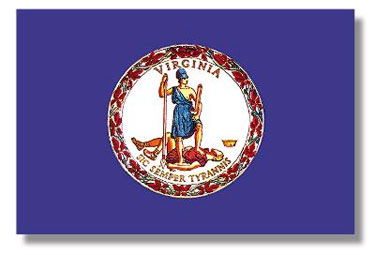Today is another entry in my occassional series on the history of the Virginia Fraud Against Taxpayers Act. Today, we take a look at an important SCOVA case that caused some influential folks down in Richmond to realize that we had a problem prosecuting certain types of claims under the existing legal framework. Those folks started looking for a solution to the problem, which turned out to be the Virginia Fraud Against Taxpayers Act.
In the early 1980’s, the city of Richmond contracted with McDevitt Bovis for the construction of the Richmond Braves baseball stadium. The stadium was built, but by the mid-1990’s, a number of flaws and short-cuts had become noticeable. As just one example, the city discovered that McDevitt had not filled the tubes supporting the roof with grout. McDevitt had, however, filled the ends of the tubes with grout so as to create the appearance and impression that the tubes were filled with grout.
McDevitt had also submitted a number of certifications promising that they had done all of the things they were supposed to do, including but not limited to filling the support tubes with grout.
The City of Richmond brought claims for both breach of contract and fraud. The fraud claims were predicated on the false certificates of completion and other compliance McDevitt had submitted. In Richmond Metropolitan Authority v. McDevitt Street Bovis, Inc., the Virginia Supreme Court held that because the contract required McDevitt to provide the certificates and other documents, misrepresentations in them might give the city a right to damages for breach, but could not give rise to liability in fraud.
That was in 1998, and the Commonwealth quickly realized that we needed another framework to address fraud on the government. By 2001, a group of influential folks — led by Aubrey Ford, a leading Richmond lawyer — had determined that the best thing to do was to pass a state false claims act that would protect the Commonwealth’s fisc from unscrupulous contractors and others who might be inclined to cut corners in the future. In order to be able to meet this important need, the law needed to have a few things in place.
First, the law needed to include a recovery framework over and above the simple compensatory remedies available in a breach of contract action. Restricting recovery to the compensatory measures available in contract means that a wrongdoer who has breached its duties to the government incurs zero additional liability when it files a false certificate promising the government that it has in fact complied with its duties.
And the filing of certificates of compliance on a monthly (or more regular basis) is an important act, and one for which liability should attach if a company or individual submits false certifications. That is because the government requires those certifications in order to supplement its ability to recover if a breach should occur. Stated a slightly different way, the parties to a contract requiring regular certifications have, when there is a false claims act in play, “opted-in” for lack of a better term, to the world of more serious remedies than those available for breach of contract.
Further, certifications like those in McDevitt are akin to a contractual requirement that a party keeps books and records as part of a business arrangement — this class of contractual obligations exists so that parties will have an easier time uncovering wrongdoing by the other party…
More to follow….
